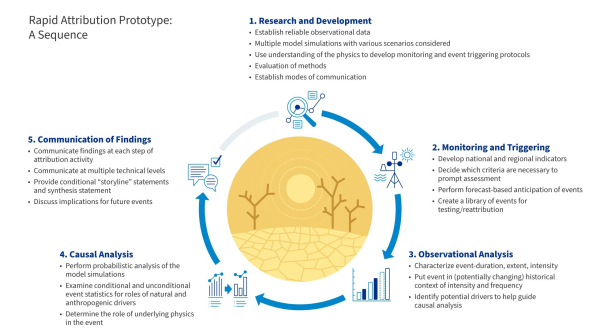Suche
Beiträge, die mit openaccess getaggt sind
This work looks into the long-lasting heat wave across Texas and Louisiana last summer.
This is a part of a broader NOAA effort on climate event attribution for the US. Graphic by https://cpo.noaa.gov/divisions-programs/earth-system-science-and-modeling-division/modeling-analysis-predictions-and-projections/rapid-attribution/
Rapid Attribution - Climate Program Office
Twitter-square Rapid Attribution The rapid attribution information system will be usable in public and private sectors informing emergency managers, regional planners, and policy makers at all levels of government.Climate Program Office
https://www.coar-repositories.org/news-updates/managing-multilingual-and-non-english-language-content-in-repositories/
#GreenOA #Metadata #Multilingualism #MultilingualResearch

Managing multilingual and non-English language content in repositories
Multilingualism is critical for a healthy, inclusive, and diverse research communications landscape. After decades of policies that have directed researchers to publish in English, we are starting to see a reversal of this trend.COAR
What do publishers do? They make us sign silly copyright forms, stamp their logo on our papers, and then proceed to charge *us* (either as authors or readers) ridiculous amounts.
People think academics/scientists are clever. We might be. But we are also stupid. And vain.
#openaccess
https://www.cell.com/iscience/fulltext/S2589-0042(23)01817-5
#Funders #OAintheUSA
Seems niche, but is super important for fighting the supervillains in for-profit publishing.
Uni staff can no longer be made to sign over copyright to publish. All work will be made freely available to all in the university repository.
We have an amazing Open Research Team at the library 📚 🦸♀️ 🏆. Thank you!
Full details:
https://www.abdn.ac.uk/library/documents/Research%20Publications%20Policy%202023.pdf
#OpenAccess #OpenResearch #RightsRetention #LibraryDon
An important read for #OpenAccess #Publishing #LibraryTwitter #oaweek2022
"Funds that are allocated to APCs should be invested in shared infrastructure, tools and services that can support multiple journals simultaneously." @juancommander
https://www.nature.com/articles/d41586-022-03201-w https://twitter.com/juancommander/status/1580185724770746369

Why I think ending article-processing charges will save open access
The way that the global north pays for publishing hampers public, scholar-led efforts in Latin America.Alperin, Juan Pablo

